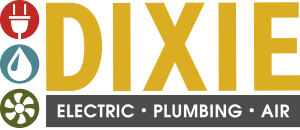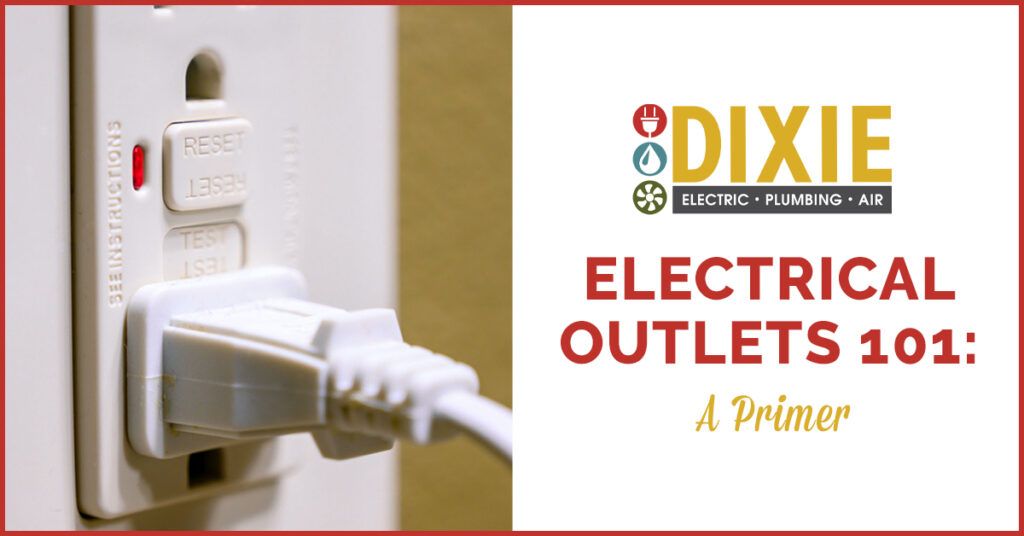The electrical components of a home can be an intimidating topic for a homeowner. Unless you’ve had ample experience working with electricity, you might not feel comfortable making repairs or upgrades yourself.
So what happens when you know there’s an issue with your electrical systems or outlets?
Let’s review some common questions many homeowners have about outlets and other elements and find out where certain problem areas lie.
What if My Electrical Outlets are Loose?
If an electrical box is installed too far back into the wall, it can cause your outlets to loosen. If they’re too far back, the outlets aren’t secure enough. While it might not be a problem now, continued use could cause shocks, sparks, and fires.
To repair loose outlets, make sure you locate your breaker and turn off the power to the room you’re in. Use a wire tester to ensure the power is off before you repair it. Outlet shims, or spacers, can help eliminate gaps that cause the outlets to become loose in the first place.
Why Doesn’t my Light Switch Work?
If you flick a switch on and off and nothing happens, several issues could be wrong. Homeowners who have access to a screwdriver, voltage tester, insulated pliers, and a wire connector can troubleshoot the root of the problem. As with the previous issue, be sure that the power is turned off in the room. That way, it’s safer to test and come up with a solution.
The culprit could be anything from no power to a loose connection to a tripped wall outlet. If you don’t feel comfortable diagnosing the problem on your own, be sure to contact us.
Where Can I Add Electrical Outlets in My House?
There are specific guidelines and codes for what your home can include in terms of electric receptacle outlets, but that doesn’t mean you can’t get creative.
In addition to common spaces where you’d see wall outlets (i.e., the corners of each room or behind high-use appliances), we’ve seen some homeowners get creative with their outlets. For example, if you have a kitchen island, you may want to add outlets to the sides to have access to electricity for mixers, coffee makers, and smaller appliances.
When “getting creative” with outlet placement, even experienced DIY-ers would be smart to call in a professional electrician. Everything you add to your home should be up to code, and there’s no one better to tackle those challenges than a licensed professional.
What Does the Age of My Home Have to do with Its Electrical Capabilities?
In a word: everything. Older homes weren’t meant or built to manage the amount of electricity that a modern family consumes. An excellent place to start to find out about the age of your electrical components is to consider your home’s birthday. Houses that are 30 years old or older might have parts that are deteriorated or improperly insulated, causing hazards down the line.
If you’re buying or selling a home, insurance companies might require updates to be made to your home’s electrical system for safety purposes.
Currently in an older home? Ensure that you hire a licensed professional to inspect the breaker panel and other elements of your electrical system.
What Is The Difference Between Two-pronged Outlets And Three-pronged Outlets?
Speaking of older homes, most homes built in the early 1960s or earlier have two-pronged outlets. These are considered “ungrounded outlets” because they don’t have a ground wire that protects your home from surges. Without this ground wire, your home is vulnerable to surges, fires, or other issues.
Likewise, a three-pronged outlet has a ground wire and is found in most homes. If you still live in a home that only has two-pronged outlets, you must hire a professional to make those updates. Otherwise, you run the risk of ruining your electronics, appliances, or possibly more.
How Many Fire Extinguishers Should I Have In My Home?
In the event of an electrical fire, it’s important to understand that you must never use water to extinguish it. Water is a conductor, and using it in that situation would make it incredibly unsafe for anyone around.
That said, there are specific types of fire extinguishers that every house should have on hand. A Class C fire extinguisher, for example, is designed to put out electrical fires.
A good rule of thumb is to have a fire extinguisher on each level of your home – one that is easy to find or reach in the event of an emergency. Some extinguishers even put out multiple types of fires. Understand the type that you’d most likely need, and get one for each level of your home.
Your Home’s Electrical Components Mean Additional Flexibility For You
Your family rests easy knowing that a light switch will turn on and off when it needs to, phones are properly charging, and the refrigerator will keep food at a safe temperature. All of these things are thanks to electricity.
If you have any outlets, panels, or other items that need immediate attention, don’t hesitate to call. Let us help your family remain comfortable and safe, knowing that their electrical needs are taken care of.
Call Dixie And It’s Done!
At Dixie Electric, Plumbing & Air, your satisfaction is guaranteed. For plumbing, electrical, or heating and air services, our highly trained technicians will do it right the first time, on time, every time. For coupons and discounts on all the services Call Dixie has to offer, click here. To schedule a service with Call Dixie, call 334.328.3570 for Montgomery, or call 334.246.4914 for Auburn. You can also schedule an appointment online.
For emergency service and immediate assistance, please call our 24/7 service line at 334.328.3570.







